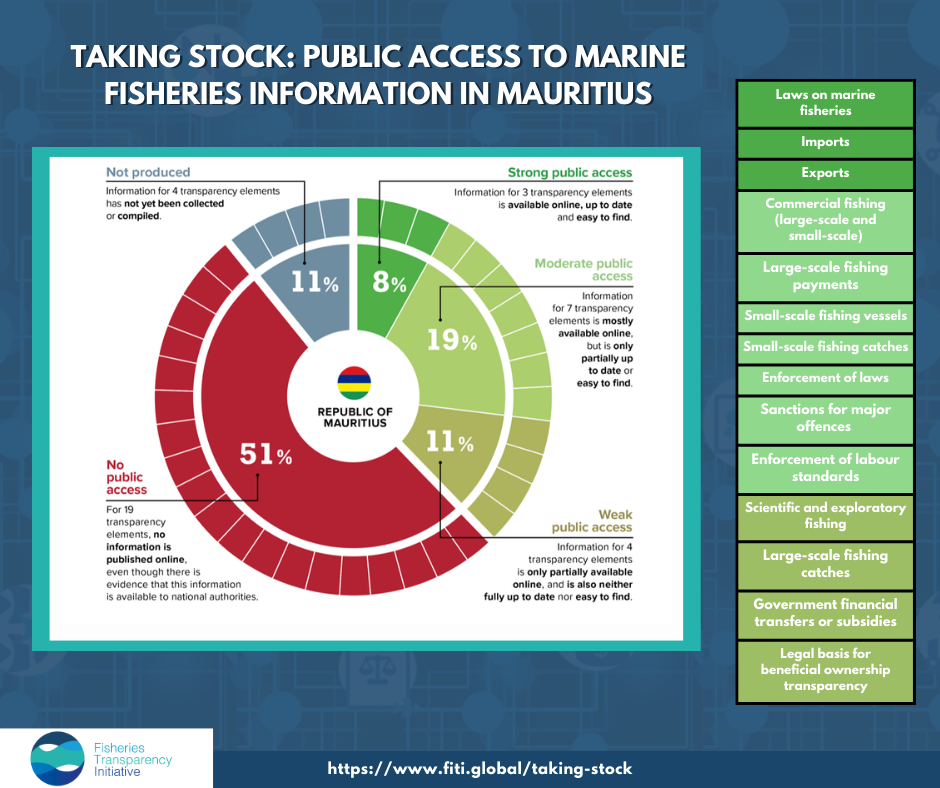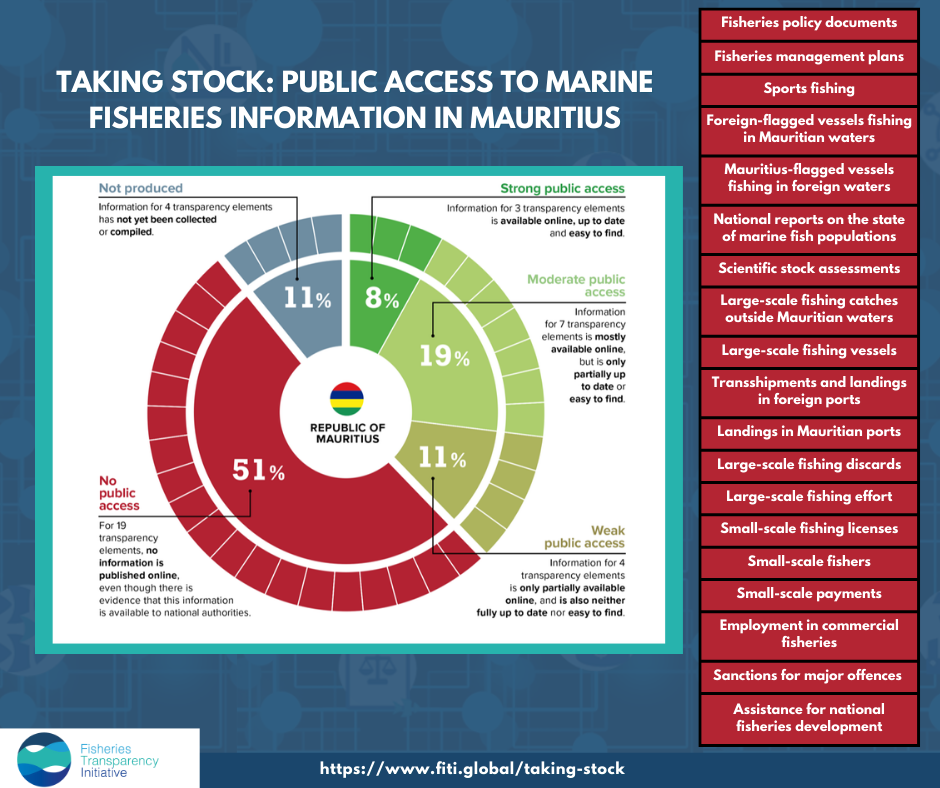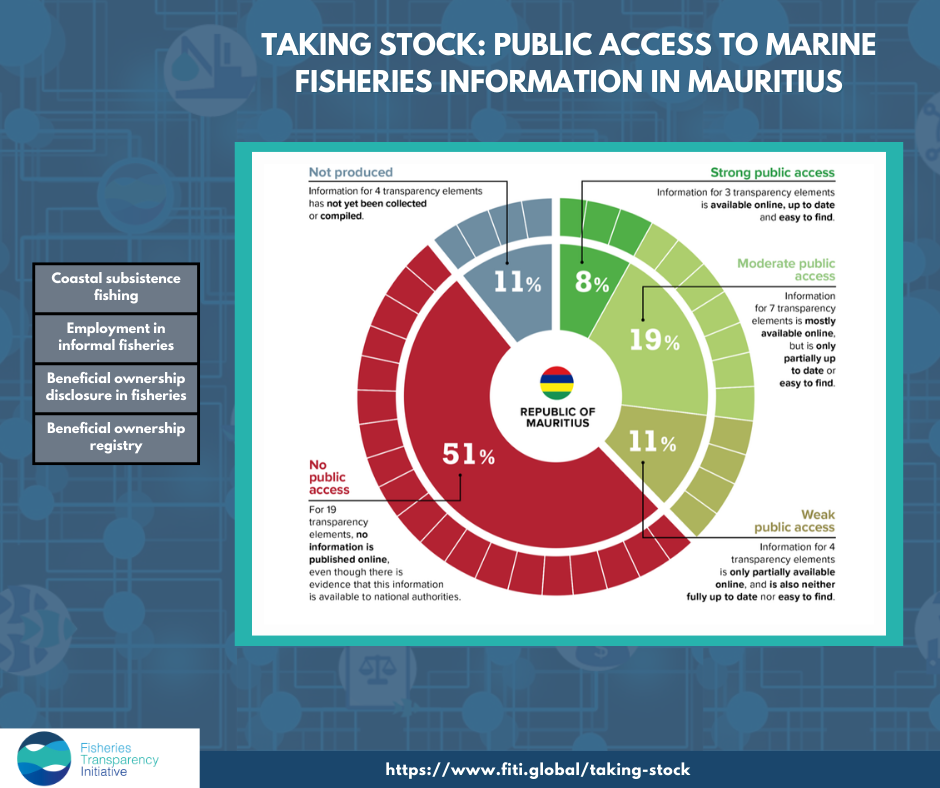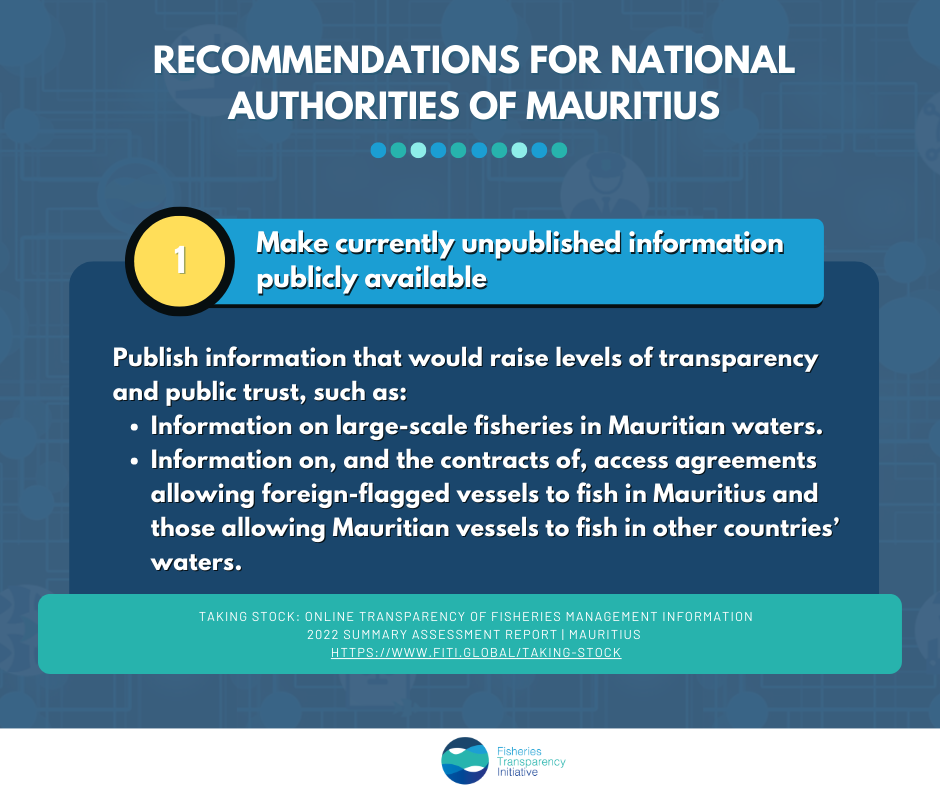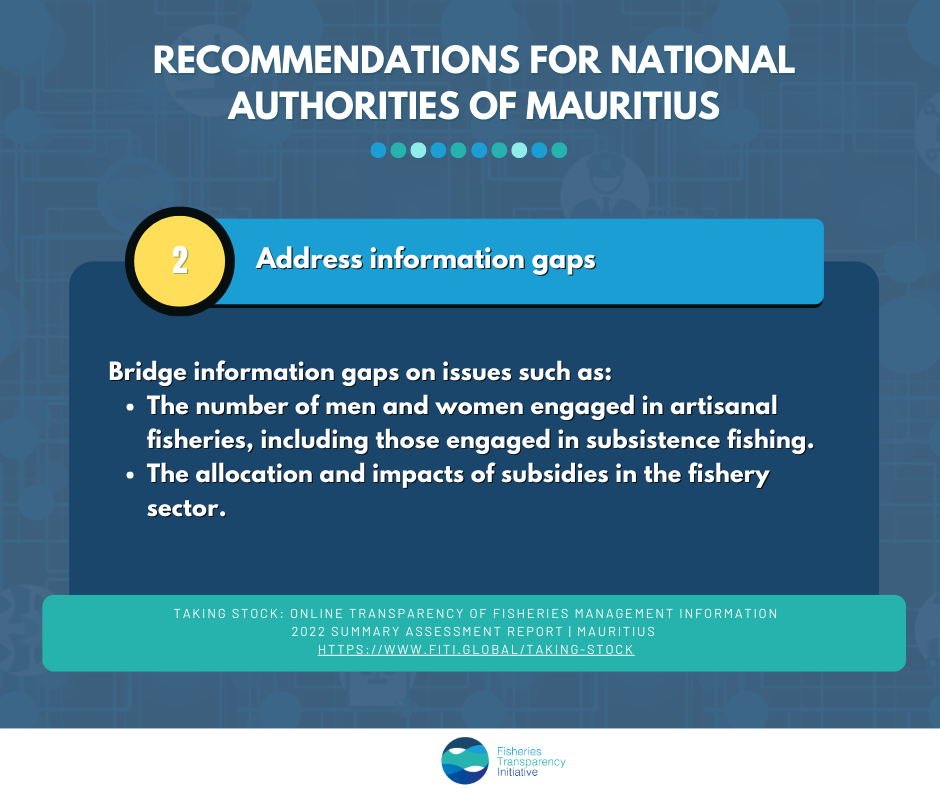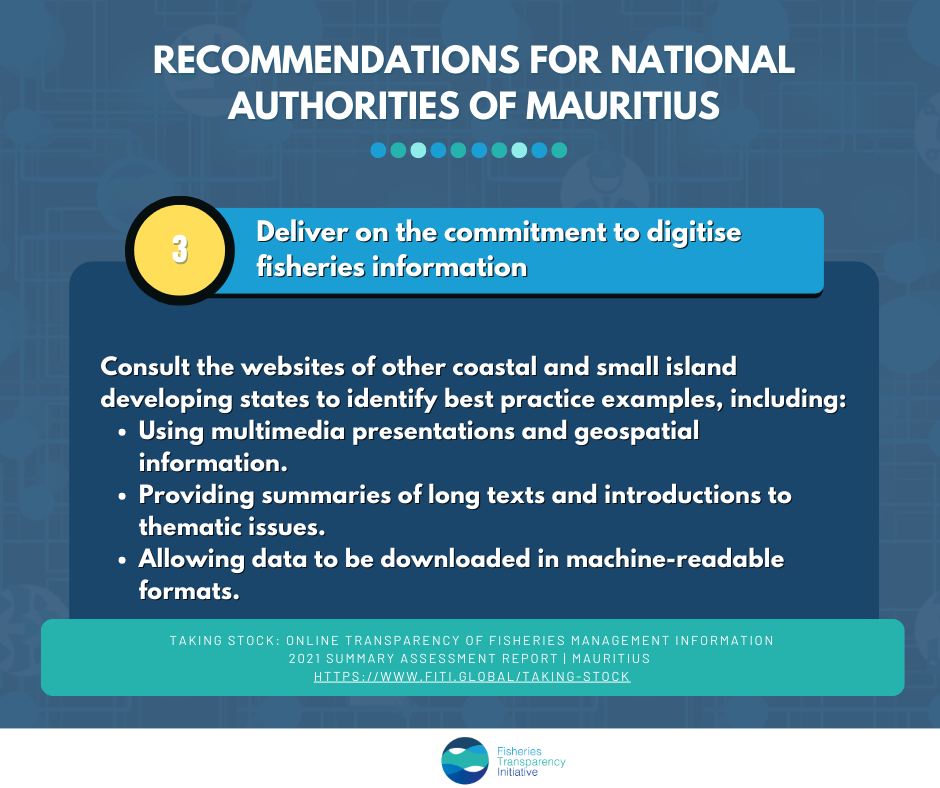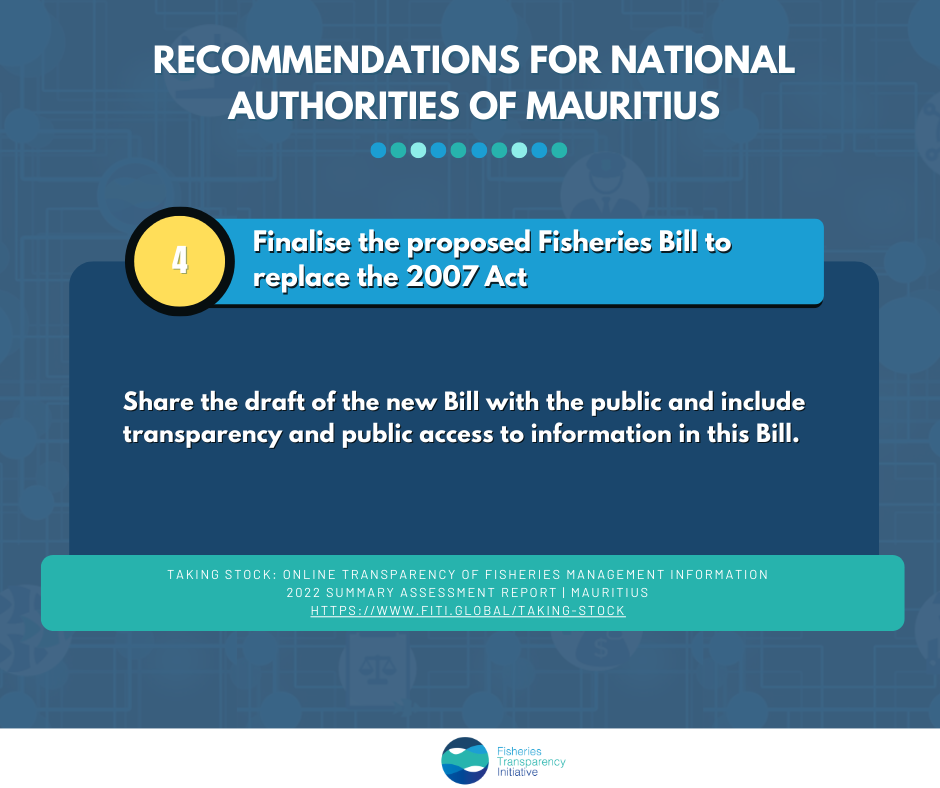TAKING STOCK assessment identifies gaps in online transparency for Mauritius, makes recommendations for improvement
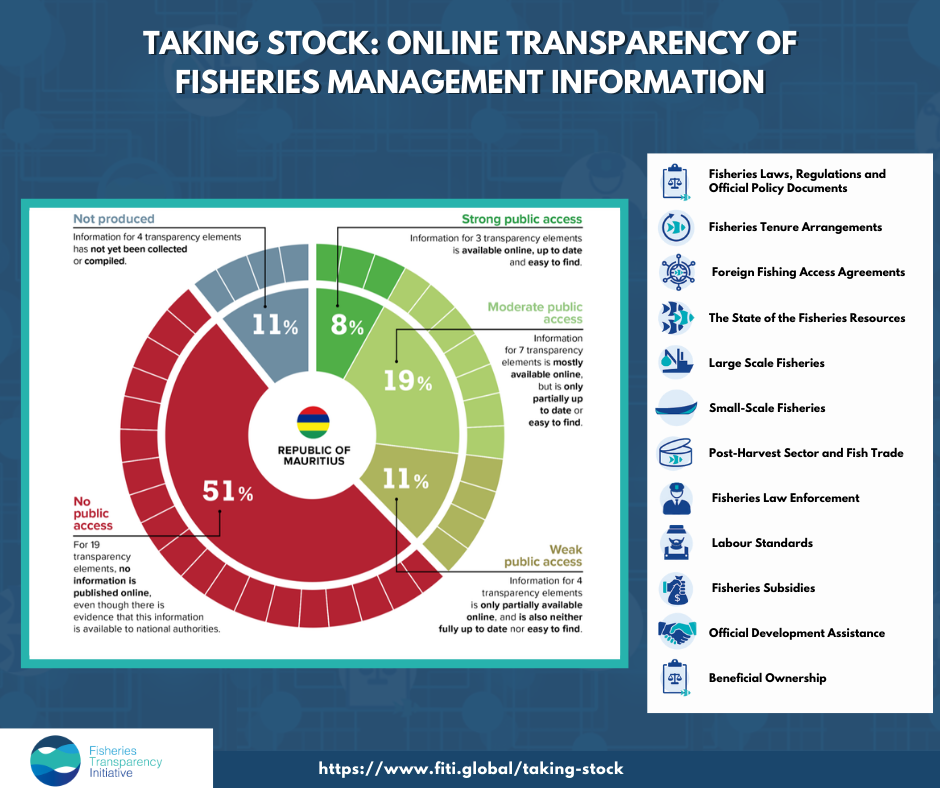
15 December 2022. In its latest TAKING STOCK assessment of online transparency of global fisheries, the Fisheries Transparency Initiative (FiTI) investigated the information that Mauritian national authorities make available to the public via government websites. Based on the requirements of the FiTI Standard, the assessment reviewed information across 12 thematic areas, looking at whether it is publicly accessible, up to date and easy to find. Overall, the results reveal the country’s poor performance; while there is some information published, the majority of what is required for open and inclusive fisheries management remains inaccessible.
Information on fisheries in Mauritius is mostly distributed through the Ministry of the Blue Economy, Marine Resources, Fisheries and Shipping website, as well as in their annual reports. However, the website is not well maintained, characterised by sparse content and blank pages, and the Ministry’s annual reports provide limited information across the 12 thematic areas. Key findings of the assessment include:
- There are no reports on the status of fish populations exploited by fishers, despite evidence that many species are likely overfished. Although the government has conducted studies on the health of some fish stocks, they do not publish the results of these studies online. This hints at a worrying lack of public knowledge on the extent to which fisheries management is sustainable in Mauritius.
- Although Mauritius licences many foreign-owned and nationally-flagged industrial fishing vessels and has plans to increase licence numbers, the government does not publish a list of licenced vessels, including information on their ownership. Additionally, the government fails to publish contracts of fishing access agreements held with foreign countries (e.g. Seychelles).
- Small-scale fishing in Mauritius is an important source of food security and livelihoods, including in Rodrigues. However, the government shares limited data on the number of people engaged in fisheries and their catches. There is also no information on employment of women. A lack of publicity on the scale of small-scale fisheries can exacerbate their marginalisation.
- The government provides extensive subsidies to the fisheries sector, including grants for the purchase of new fishing vessels. Yet there are only brief statements about the extent of these subsidies and no information on who the recipients are.
Furthermore, the assessment describes the deterioration of transparency in Mauritius’ fisheries sector over time. Annual reports published during the 2000s contained more detailed information. It is unclear why the level of reporting on fisheries has been allowed to decline.
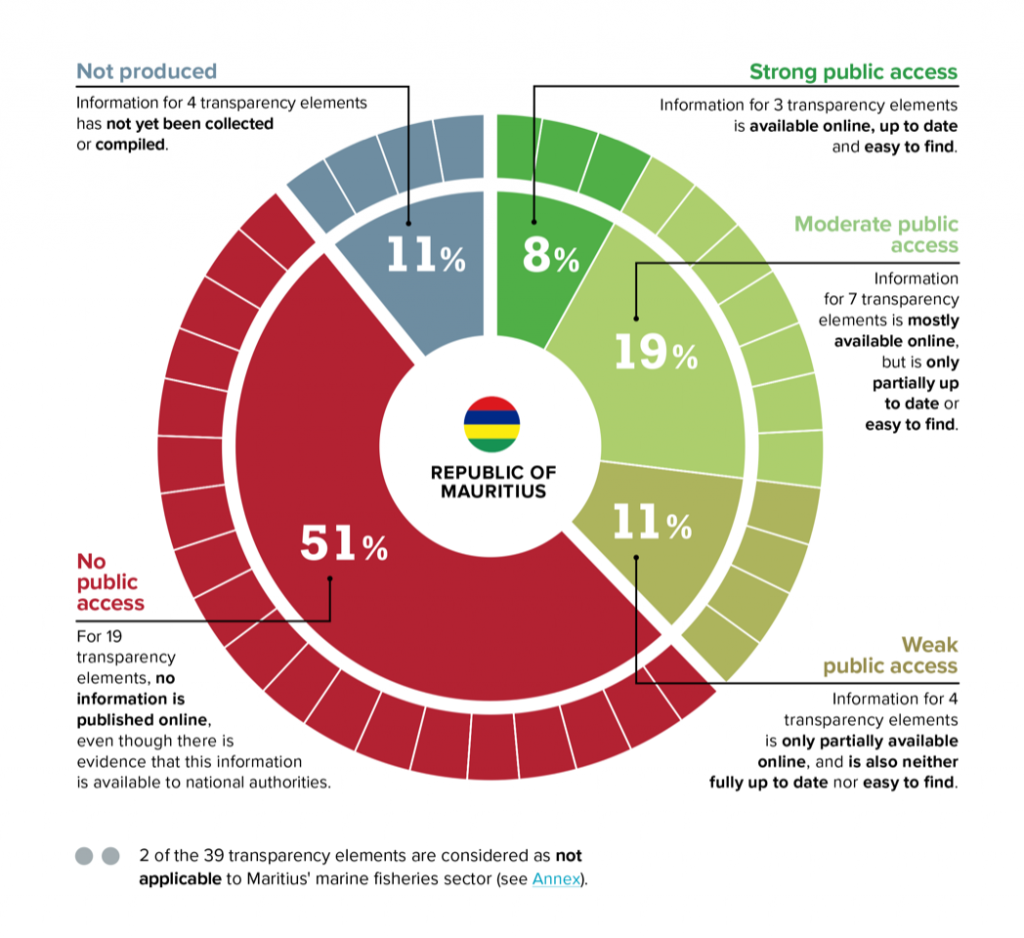
Despite Mauritius’ negative score in this assessment, it is positive that the Ministry of the Blue Economy, Marine Resources, Fisheries and Shipping in its most recent annual report announced its commitment to digitalise service delivery and internal administration within its departments. Although this policy has yet to be elaborated, it presents an opportunity for the government to address the major shortfalls in fisheries transparency.
As emphasised by Will May, FiTI’s Regional Coordinator for the Western Indian Ocean, “This TAKING STOCK assessment serves as a tool for stakeholders in Mauritius to better understand where there are gaps in information regarding their fisheries sector. The decline in the quality of publicly available information over the years, as outlined in the report, is worrying. However, by implementing the FiTI Standard – and so following the examples of Seychelles and Madagascar – Mauritius can demonstrate its commitment to reversing this trend and to achieving the highest levels of transparency and public participation in marine fisheries.”
Mauritius’ TAKING STOCK assessment is available to download as a Summary Assessment Report, or as an in-depth Detailed Assessment Report (both in English).
The assessment for Mauritius was funded by Irish Aid and conducted under the supervision and responsibility of the FiTI International Secretariat.

